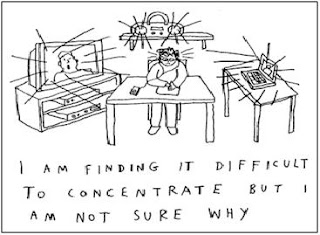Glossary
Work ethic: Work ethics include not only how one feels about their job, career or vocation, but also how one does his/her job or responsibilities. This involves attitude, behavior, respect, communication, and interaction; how one gets along with others.
Soft skills: Soft skills are personal attributes that enhance an individual's interactions, job performance and career prospects.
Strategy: A plan of action or policy designed to achieve a major or overall aim.
Objectives: The desired or needed result to be achieved by a specific time. An objective is broader than a goal, and one objective can be broken down into a number of specific goals.
Prioritizing: It means that you complete the most important tasks first and should help you to make more realistic plans in future. Also as a principle, it means doing 'first things first;' as a process, it means evaluating a group of items and ranking them in their order of importance or urgency.
Independence: Someone who has independence is able to act without depending on others, e.g. for financial support, approval or assistance in completing a task. The state or quality of being independent is freedom from the influence, control, or determination of another or others.
Facts: A fact is something that has really occurred or is actually the case. The usual test for a statement of fact is verifiability, whether it can be shown to correspond to experience.
Opinions: An opinion is a belief, impression, judgment or prevailing view held by a person. A view or judgment formed about something, not necessarily based on fact or knowledge. An example of an opinion is capitalism is better than socialism.
Summarize: To present in a condensed form; to list the main points in a brief and comprehensive manner. To summarize is to sum up the most important points of a communication.
Open Questions: An open question is likely to receive a long answer. Although any question can receive a long answer, open questions deliberately seek longer answers, and are the opposite of closed questions.
Closed Questions: A closed question can be answered with either 'yes' or 'no'. Thus 'Are you happy?' and 'Is that a knife I see before me?' are closed questions, whilst 'How are you?' and even 'How old are you?' are not, by this definition, closed. This limited definition is also sometimes called a 'yes or no' question, for obvious reasons.
Frequently Asked Questions
1.What is are general attributes?
Regardless of the job and its particular requirements, there are some skills called soft skills that everyone is expected to have, to some extent; these skills make you better able to carry out the tasks for any job.
2. What are the main barriers to communication?
The main barriers to communication are: Distractions, Background noise and Lack of Concentration.
3. What do the principles of effective communication depend on?
The principles of effective communication depend on the type of communication that you are using. There are some that apply in general, some that relate only to interpersonal communication and others that apply specifically to written communications.
4. What are the main attitudes an employer would look for in an employee?
The main attitudes an employer would look for in an employee are: Independence, Problem Solving, Creativity, Tolerance and Confidence.
5. Why is negative body language a barrier to communication?
Cutting in while another person is speaking, depending on how you do it, can convey enthusiasm or may be seen as antagonistic. Finishing other people’s sentences can be irritating and may indicate insensitivity on your part.
6. What is a blog?
A blog is a personal online journal that is frequently updated and intended for general public consumption. Blogs are defined by their format: a series of entries posted to a single page in reverse-chronological order.





